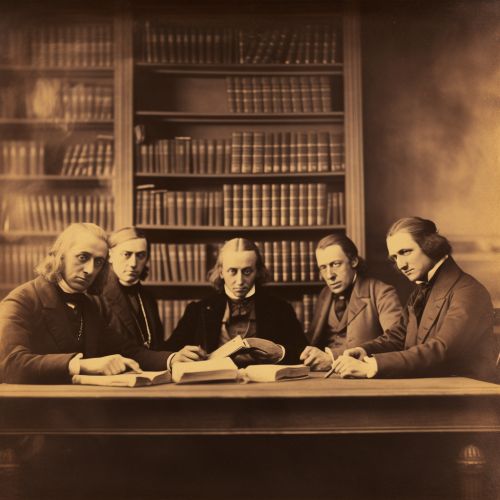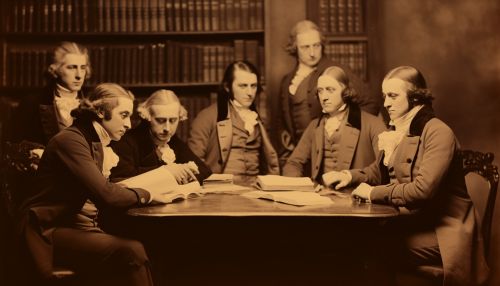Analytical Society
Origins and Formation
The Analytical Society was an informal gathering of British mathematicians that was established in the early 19th century. The society was founded by Charles Babbage, John Herschel, and George Peacock, who were then students at the University of Cambridge. The primary aim of the society was to promote the use of Leibniz's notation in place of the more cumbersome Newton's notation, which was prevalent in British mathematics at the time.


Objectives and Contributions
The Analytical Society played a significant role in modernizing British mathematics. Its members were instrumental in introducing the Continental style of mathematical notation, which was more efficient and easier to use than the existing British system. They also worked to reform the mathematics curriculum at Cambridge, advocating for a more analytical approach to the subject.
The society's efforts were met with resistance from the traditionalists at Cambridge, who were reluctant to abandon the Newtonian methods that had been in use for over a century. However, the Analytical Society's members were persistent in their efforts, and their work eventually led to significant changes in the way mathematics was taught and practiced in Britain.
Dissolution and Legacy
The Analytical Society was dissolved in the early 1820s, but its influence continued to be felt long after its members had moved on to other pursuits. The society's work laid the groundwork for the widespread adoption of Leibnizian calculus in Britain, and its members went on to make significant contributions to various fields of mathematics and science.
Charles Babbage, for instance, is often referred to as the "father of the computer" for his work on the difference engine and the analytical engine. John Herschel made significant contributions to the field of astronomy, and George Peacock became an influential figure in the field of algebra.
